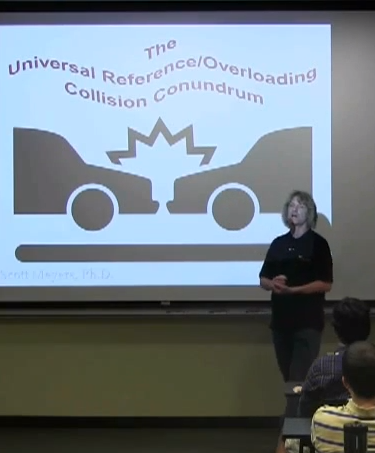
Scott Meyers gave a well-received "beta" talk last week at NWCPP on the topic below, which he described as the most complex Item he's encountered as he prepares his upcoming book Effective C++11/14:
The Universal Reference/Overloading Collision Conundrum
by Scott Meyers
Abstract:
To help address the confusion that arises when rvalue references become lvalue references through reference collapsing, Scott Meyers introduced the notion of "universal references." In this presentation, he builds on this foundation by explaining that overloading functions on rvalue references is sensible and useful, while seemingly similar overloading on universal references yields confusing, unhelpful behavior. But what do you do when you want to write a perfect forwarding function (which requires universal references), yet you want to customize its behavior for certain types? If overloading is off the table, what's on? In this talk, Scott surveys a variety of options.
Though Scott will give a one-slide overview of the idea behind universal references at the beginning of the presentation, attendees are encouraged to familiarize themselves with the notion in more detail prior to the talk. Links to written and video introductions to universal references are available here.

Add a Comment
Comments are closed.